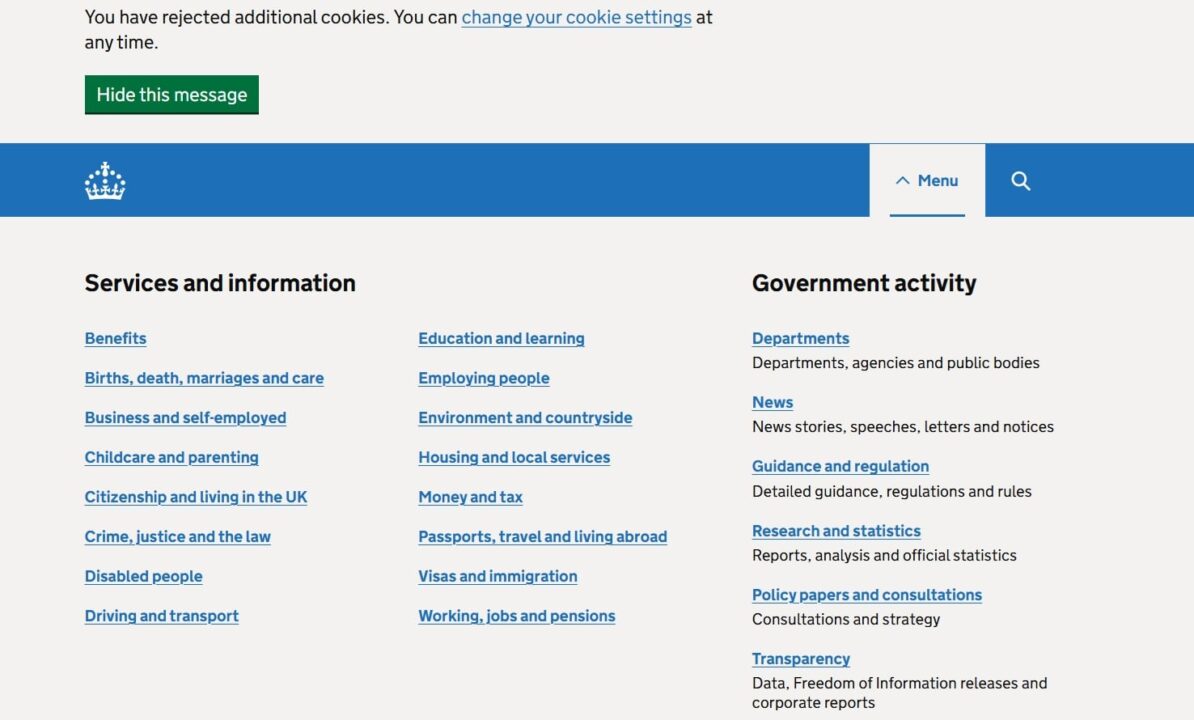Housing Benefit Changes 2025: Starting from April 2025, the United Kingdom is implementing major reforms to its Housing Benefit system. These updates are part of a broader national effort to adapt welfare support to the evolving economic landscape. With adjustments to eligibility rules, payment structures, and employment requirements, both current recipients and new applicants must be prepared for the impact these changes may have on their financial support.
This comprehensive guide will walk you through everything you need to know about the Housing Benefit reforms, who they will affect, and how to prepare effectively.

Housing Benefit Changes 2025
The government’s decision to reform Housing Benefit stems from several persistent economic challenges, including rising inflation, stagnant wage growth, and soaring housing costs across the country. With a limited public budget, there is an increasing need to ensure that financial support is directed to those most in need, while also promoting economic self-reliance among working-age citizens.
The aim of these Housing Benefit Changes 2025 is twofold:
- Targeted Support: Focus on providing aid to vulnerable populations genuinely struggling with housing affordability.
- Encouraging Employment: Motivate capable individuals to seek employment or increase their working hours.
$3200 stimulus payment to upgrade your home’s technology: Are you Qualify?
Canada $2350 CRA Payment April 2025: Eligibility, Application Process & Important Deadlines
These Housing Benefit reforms are also designed to make the Housing Benefit system more flexible and responsive to regional differences in the rental market.
How Housing Benefit Payment Adjustments Will Work?
From April 2025, Housing Benefit payments will be adjusted based on local housing market conditions. Here’s how different regions will be affected:
- Region Type Expected Payment Change Notes.
- High-Rent Areas Slight increase in benefits Designed to match the high cost of urban living.
- Low-Rent Areas Possible reductions or capped payments Focused on controlling benefit expenditure.
- Social Housing Minor adjustments Rent is already regulated in social housing.
- This localized approach ensures that those living in expensive areas like London or Manchester receive adequate support, while preventing overpayment in regions with lower housing costs.
Updated Eligibility Rules: What Changes?
To better direct support, the eligibility requirements for Housing Benefit are being tightened. Key updates include:
- Lower Asset and Income Limits: Individuals with moderate savings or multiple income streams may no longer qualify.
- Automatic Reassessments: Existing claimants will have their cases reviewed automatically to ensure continued eligibility.
- New Rules for Universal Credit Recipients: Those receiving Universal Credit may see their Housing Benefit recalculated, potentially resulting in lower payments.
If you have fluctuating earnings or have recently started a new job, it’s crucial to seek advice early, as your entitlement could change significantly. Using online benefit calculators or consulting a local housing advisor can help you prepare for any adjustments.
New Employment Requirements for Working-Age Claimants
One of the most impactful Housing Benefit Changes 2025 is the introduction of stricter employment-related obligations for non-retired claimants. These include:
- Mandatory Job-Seeking: Unemployed claimants must actively look for work or increase their current work hours.
- Participation in Training Schemes: Claimants may be required to attend job center sessions or enroll in skills development programs.
- Exemptions: Pensioners, full-time careers, and individuals with verified medical conditions will continue to be exempt from these requirements.
This initiative aims to reduce dependency on government support by encouraging more claimants to transition into the workforce, though it raises concerns about how those in precarious or part-time employment will cope.
Introduction of Localized Rent-Based Calculation Model
From April 2025, Housing Benefit calculations will align more closely with local rental conditions. Here’s what to expect:
- Higher Benefits in Expensive Areas: Urban centers with high living costs may see an increase in benefit payouts.
- Lower Benefits in Affordable Regions: Areas where rental prices are lower could see benefit reductions or caps.
By tying Housing Benefit more directly to actual rent levels, the government aims to deliver fairer support while ensuring better control over public spending.
What These Changes Mean for Tenants and Landlords?
For private tenants, the regional adjustments may lead to either a slight increase or decrease in financial support depending on where they live. Those in expensive cities are likely to benefit, while those in more affordable areas may need to cover a larger portion of their rent out of pocket.
Social housing tenants, on the other hand, will see minimal changes as their rents are already subject to regulatory limits. Landlords should stay updated on tenants’ eligibility and benefit adjustments to avoid issues such as rent arrears. Understanding when and how benefit payments will change can help maintain stable tenancy agreements and financial planning.
How to Prepare for the Housing Benefit Changes?
To navigate the upcoming transition smoothly, claimants should take the following steps:
- Check for Updates Regularly: Monitor official announcements on gov.uk to stay informed about eligibility criteria and payment updates.

- Use Benefit Calculators: Tools available online can help you estimate your future entitlement under the new rules.
- Consult Housing Advisors: Seek advice from local authorities or housing support organizations to understand how the changes affect your situation.
- Update Personal Information: Ensure that your myGov or relevant benefits portal has your most up-to-date financial and personal details to avoid delays during reassessment.
- Prepare Documentation: Gather all necessary paperwork, including income statements, bank records, and proof of rent payments, ahead of any reassessment notifications.
Government outreach initiatives, including online webinars and community events, are already underway to help claimants adjust to these reforms.
Long-Term Impact of the Housing Benefit Reforms
The April 2025 reforms represent a significant shift in the UK’s approach to welfare support. Expected long-term effects include:
- Greater financial pressure on low-income renters, especially in areas where benefit payments are reduced.
- More complex administrative processes for councils and housing services managing updated eligibility assessments.
- Increased emphasis on personal responsibility, pushing individuals towards securing stable employment or adjusting living arrangements.
- For some, adapting may involve relocating to more affordable housing areas, applying for discretionary housing payments, or increasing working hours to supplement reduced benefits.
Conclusion: Stay Informed and Act Early
The Housing Benefit changes effective from April 2025 are reshaping the welfare landscape across the UK. With stricter eligibility rules, new employment conditions, and region-specific payment structures, it’s critical for both tenants and landlords to understand and prepare for the shifts ahead.
$5108 Social Security payment April 2025: Who Qualifies and How to Maximize Your Benefits
By acting early—reviewing eligibility, consulting housing advisors, and staying updated—individuals can minimize disruption and maintain financial stability. Proactive preparation is the key to navigating these significant changes successfully.
Frequently Asked Questions (FAQs)
What are the main changes to Housing Benefit from April 2025?
Eligibility thresholds are tightening, payments will vary more by region, and work requirements for non-retired claimants are being strengthened.
Who is exempt from the new employment conditions?
Pensioners, full-time carers, and individuals with certified disabilities remain exempt.
Will my Housing Benefit stop under the new rules?
Not automatically, but you may be reassessed. Your payments could change based on updated eligibility criteria.
How can I check if I still qualify for Housing Benefit?
Use the official benefits calculator on gov.uk or seek advice from a certified housing advisor.
Can I appeal if my benefit is reduced?
Yes. There is a formal appeal process where you can contest reassessment decisions or payment reductions.


![Assam Circle Offers New Super Saving Plans- Family pack and Jeevan Sathi plan 2025 [Complete Guide] 4 Assam Circle New Super Saving Plans](https://sancharnet.in/wp-content/uploads/2025/02/Assam-Circle-New-Super-Saving-Plans-1024x576.jpg)


![Kerala Lottery Result Today Live 28 Feb 2025 : KARUNYA PLUS KN-563 Friday 3PM Draw 7 [LIVE] Kerala Lottery Result Today (28.02.2025) KARUNYA PLUS KN-563 Friday 3PM Draw](https://sancharnet.in/wp-content/uploads/2025/02/LIVE-Kerala-Lottery-Result-Today-28.02.2025-KARUNYA-PLUS-KN-563-Friday-3PM-Draw-1024x576.jpg)
